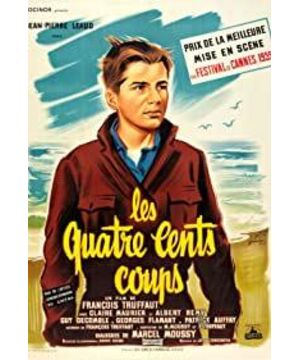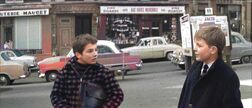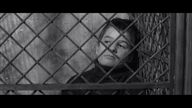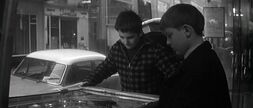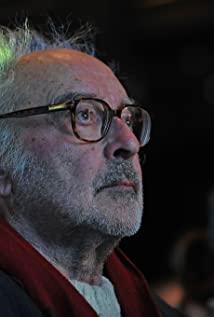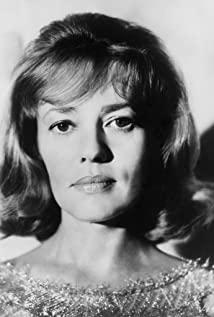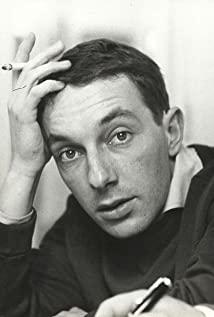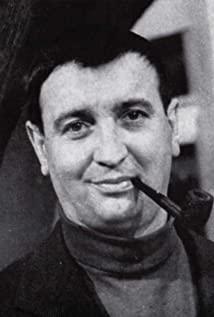Because of the language barrier, the number of French films I have watched is very limited. Summarizing the common denominator from only a few films, it seems that the extensive use of long lenses is a major feature. They create the soothing romance of French art cinema, a far cry from American Hollywood films—perhaps that's the difference between art and commerce. As an important city in the world of cinema, the status of French cinema in the world cinema cannot be underestimated. Although Hollywood movies are taking the global limelight these days, I think that cinema is ultimately an art category, and perhaps it is closer to its essence here in the French.
When I write a film review, I seldom describe the plot of the film, and this time I don't want to make an exception; I rarely think of my own experience when watching the film, but when I watched "The Four Hundred Downs", it was different from before. Strangely, a long-lost picture appeared in front of my eyes: it was more than ten years ago, and I was only in the third grade of elementary school. At that time, I promised my father that I would come home to learn English after half an hour of going out. But I was so playful that I forgot the time as soon as I stepped out of the house. After more than four hours, at noon, I was hungry and only remembered to go home. Frightened knock on the door, angry father would not let me in. In a fit of rage, I ran away. It was noon, and every household was enjoying lunch. I was wandering in the empty streets by myself, and the smell of vegetables wafted from the window from time to time, which made me even more hungry. Hunger, loneliness, and fear enveloped my young mind, and it can be said to be the most painful and desperate experience in my life at that time. (In fact, the whole process took less than an hour, and my mother found me and dragged me home.) For
the next few years, I considered myself a good child. The world has changed for more than ten years, and I have long since forgotten about it. While watching "The Four Hundred Downs", I saw little Anthony foraging alone on the cold streets of Paris, and suddenly I remembered this experience. "Movies are the language of the world" and "emotions are connected", it is true.
After all, a movie is made up of shots. I believe that the reason why this movie gives me such a wonderful feeling is the ingenious shots. Therefore, here I would like to briefly talk about three long shots that impressed me a lot:
the first is the low-angle upside-down shot of nearly half a minute at the beginning of the film - this is the first time I have seen Effie from this angle Eiffel Tower. The angle is novel and the effect is natural and unique. I guess the director used this long shot to tell the audience that the prosperous and glamorous Paris in our eyes may be a different scene for a 13-year-old boy;
the second is in the back of the film, little Anthony because of "theft" A typewriter was arrested. In the detention center, the police brought in a so-called child psychologist to interrogate him, but he was actually making a statement for his detention. There is no psychologist in the picture, we can only see Anthony facing the camera alone. In this way, the director wants to convey a meaning: the audience in front of the screen - we - the psychologist, is actually one. We may have played a part in Anthony's tragedy; in the
end it was the classic, textbook-like long shot at the end of the film - we ran with Anthony, over fields, over hills, over forests, and finally to the symbol The sea of freedom—and here he has nowhere to go. The camera finally freezes on his desperate eyes, which seem to be asking people where to go, but who can tell him?
The famous painter Feng Zikai once called the scars left by playing in childhood as "dream scars", because people live in dreams in childhood; Lu Xun also said that the most painful thing in life is to wake up from a dream and have no way out. can go. I think Anthony's childhood ended prematurely the moment he was escorted into the police van, and when he realized that, he was being held with real adult criminals, and nothing could be undone. Thinking of this, my heart is as sad as Anthony's empty eyes.
View more about The 400 Blows reviews


